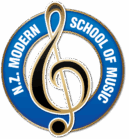
Choosing Between Classical and Modern: Deciding Your Musical Path
When embarking on the journey of learning to play piano, guitar, or keyboard, the question often arises: should I focus on classical or modern music? Each path offers its own set of challenges, rewards, and opportunities for musical growth. Deciding between classical and modern styles requires careful consideration of your musical preferences, goals, and aspirations.
Classical Music: Timeless Elegance and Technical Mastery
Classical music represents centuries of rich tradition and artistic achievement. Learning classical repertoire on piano or guitar involves delving into the works of renowned composers such as Bach, Mozart, and Beethoven. Here are some reasons why you might choose to pursue classical training:
- Technical Foundation: Classical music emphasizes precision, control, and discipline. Mastering classical techniques like proper hand positioning, finger independence, and dynamic control lays a solid foundation for advanced musical skills.
- Musical Theory and Interpretation: Classical training involves studying music theory, notation, and interpretation. Understanding the structure and nuances of classical compositions enhances your musical comprehension and expressive capabilities.
- Repertoire Diversity: The classical repertoire offers a vast array of musical styles, from Baroque fugues to Romantic sonatas. Exploring classical masterpieces exposes you to a wide range of musical genres, forms, and historical periods.
- Performance Opportunities: Classical music provides numerous performance opportunities, including solo recitals, chamber music ensembles, and orchestras. Participating in classical performances allows you to showcase your skills, connect with fellow musicians, and experience the timeless beauty of live classical music.
Modern Music: Creativity, Innovation, and Self-Expression
Modern music encompasses a diverse range of styles, including rock, pop, jazz, blues, and contemporary genres. Learning modern techniques on piano, guitar, or keyboard opens up a world of creative possibilities. Here are some reasons why you might choose to explore modern music:
- Creative Freedom: Modern music encourages experimentation, improvisation, and innovation. Whether you’re composing original songs, improvising solos, or arranging covers, modern styles offer ample opportunities for self-expression and artistic exploration.
- Contemporary Techniques: Modern musicians employ a variety of techniques such as strumming, picking, bending, and tapping. Learning these techniques enhances your versatility as a musician and enables you to play a wide range of musical genres and styles.
- Ear Training and Improvisation: Modern music often relies on ear training and improvisational skills. Improvising melodies, chords, and rhythms fosters spontaneity and musical fluency, allowing you to jam with other musicians and adapt to different musical contexts.
- Technology Integration: Modern musicians embrace technology to enhance their sound and creativity. Digital audio workstations (DAWs), MIDI controllers, and effects pedals offer new avenues for sound design, recording, and electronic music production.
Making the Decision: Considerations and Reflections
When deciding between classical and modern music, consider the following factors:
- Personal Preferences: Reflect on your musical tastes, interests, and goals. Do you feel drawn to the elegance and complexity of classical music, or are you more inspired by the creativity and innovation of modern styles?
- Long-Term Aspirations: Think about your long-term musical aspirations and how they align with classical or modern training. Are you interested in pursuing a career as a classical concert pianist or guitarist, or do you envision yourself performing in a band, recording studio, or contemporary music ensemble?
- Balance and Versatility: Keep in mind that you’re not limited to exclusively pursuing classical or modern music. Many musicians enjoy exploring a combination of classical and modern styles to broaden their musical horizons and enhance their skills.
Ultimately, the decision between classical and modern music comes down to your individual preferences, goals, and aspirations as a musician. Whether you choose to immerse yourself in the timeless elegance of classical repertoire or explore the creative possibilities of modern styles, remember that the journey of musical discovery is yours to embrace and enjoy.

